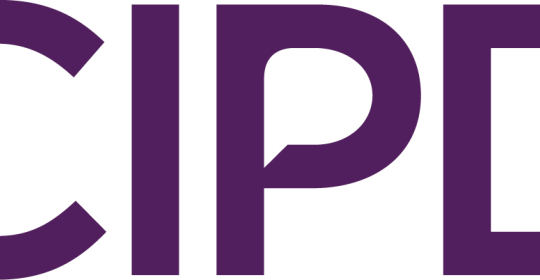- Half (50%) of UK workers have been put off applying for a role due to not understanding a job description
- Lose the jargon: Two in three (68%) UK workers call for employers to write jobs ads with more clarity
- ‘Open the kimono’, ‘cloud-first’, ‘blue-sky thinking’ and ‘thought shower’ amongst the most hated jargon in job ads
- Nearly half (48%) of grads turn up to interviews unsure as to the nature of the role due to the language used in the job ad
- Worst sectors for job ad jargon include PR, IT, Sales and Marketing
- Milkround have created the Jargon Decoder to help decipher confusing job ads: https://www.milkround.com/insights/job-ad-jargon-decoder/#/
UK jobseekers have no time to be ‘laser-focused’ nor have any desire to be a ‘ninja’ according to a new study of job adverts. In fact, buzz-phrases and mind-boggling jargon in job posts is so off-putting that half of budding jobseekers (50%) would be put off applying entirely.
Whether you’ve done some ’blue-sky thinking’ about getting that ’low-hanging fruit’ or are ready to ‘hit the ground running’ with an ‘idea shower’, Britain’s job hunters are increasingly baffled by job ads. The problem isn’t limited to terminology and abbreviations; research by graduate jobs specialist Milkround revealed the public find job titles equally confusing, with ambiguous labels like ‘New Media Czar’, ’Coordinator of Interpretive Teaching’ and ‘Conversation Architect’.
Off-putting jargon
If the nation is confused, it’s no wonder that grads are struggling. According to Milkround, those dipping their toes in the jobs market for the first time are having issues navigating industry language with complex wording in job ads leaving them confused and underprepared. Thanks to such jargon jousting, nearly half (48%) of graduates admit to turning up to an interview still unsure as to what the role even entails.
A call for clarity
Three quarters (75%) of graduates want adverts to be written in plain English, while 55% feel stressed by the job application process.
Whilst companies may think adverts which are riddled with technical jargon, buzz-words and abbreviations attract the best candidates, three quarters (77%) of graduates think that job adverts can be deliberately ambiguous while three in five (59%) said that not understanding these terms would prevent them from applying in the first place.
Six in ten (64%) of graduates inevitably feel they can’t apply for a role if they don’t understand the job description and 71% claim that business acronyms in ads such as ‘SLA’, ‘DOE’, ‘POC’ and ‘B2B’* leave them feeling underqualified.
More experienced UK adults are equally baffled with nearly two in three (68%) saying they would prefer if job ads were simplified, proving it isn’t just recent graduates at a loss when it comes to deciphering job ad jargon.
Most misunderstood job jargon amongst graduates:
- Open the kimono (82%) of grads who have not heard the term
- Cloud-first (76%)
- Growth hacking (73%)
- Blue-sky thinking (67%)
- Thought shower (64%)
- Brand architecture (61%)
- Low-hanging fruit (64%)
The graduate gender divide
Whilst both males and females are calling for clarity, the gender divide shows a marked difference in ad preferences and what terms graduate job hunters are comfortable with. Whilst men are slightly more comfortable with acronyms and terms with a definitive, translatable meaning such as FTC, CRM and KPI: 61% of men claim to not understand business acronyms versus nearly three quarters of women (74%) who are confused. Overall, women are consistently less likely to have heard of acronyms & business terms with three quarters (74%) claiming that not understanding acronyms makes them feel underqualified for the role (versus 61% of men). Three quarters (77%) of women would lack confidence in applying for a role at all compared to 65% of men.
Meanwhile, women find descriptive jargon less off-putting than their male counterparts showing they are more comfortable with phrases which are open to interpretation and often hold no definitive meaning such as ‘action-orientated’ and ‘ninja’. Four in ten (42%) of men claim to find jargon confusing, compared to only 26% of women.
Milkround worked with Language Expert Steven Poole to conduct the research who says,
"Research has long shown that business jargon makes people feel oppressed in the workplace, but the news from increasingly jargon-infested recruitment advertising is even worse: this new data shows that companies using jargon in their job ads are actually preventing candidates from even going for a role — and so pushing talent away. For the sake of both employees and employers, it’s time to cancel the buzz words and try saying what we really mean."
Most off-putting candidate descriptions:
- Ninja
- Laser-focused
- Self-starter
- Entrepreneurial mindset
- Action-orientated
- Hit the ground running
- Proven track record
Industries most guilty of jargon-riddled job adverts with 4+ average per ad in order of worst offender:
- PR
- IT
- Sales
- Marketing
- Engineering
- Legal
- Property
- Administration
- Insurance
- Banking
Decoding the jargon
As a result, graduate jobs specialist Milkround has launched the Job Jargon Decoder, a unique tool to help decipher the often off-putting, fancy linguistics surrounding job adverts. The Jargon Decoder offers clarity on SLA and DOE’s for budding candidates, to offering guidance for employers seeking the best talent.
Georgina Brazier at Milkround says,
“Our research shows the need for businesses to offer concise information and clarity so top talent isn’t put off by jargon, abbreviations and buzz-phrases. Gone are the days of limited characters within a newspaper job ad. Employers have the scope to include clear outlines and expectations, offering budding candidates full details of the role on offer.”
“In response to the need for clarity, Milkround has created the Jargon Decoder to offer support to candidates needing guidance in navigating job ads and guidance for employers to provide clear, concise adverts.”
Research: Sample of 2000 nationally representative adults; 2,010 participants who graduated in the last 2 years 28th June – 3rd July 2019.






